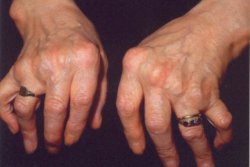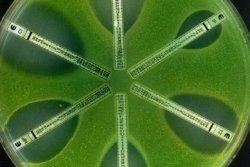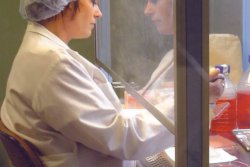Publications
Many News Items And Advances To Be Presented When The Swedish Life Sciences Gather Their Collected Powers In Dusseldorf
Published on

Sweden, with a historic tradition as the place for major biomedical innovations such as chromatography and electrophoresis, has been the birthplace of a number of world-leading companies. An important driving force has been the founding scientific research performed at Swedish universities, with Stockholm-based and Nobel Prize-related Karolinska Institutet at the forefront with its 300 professors, 900 other researchers and 2,000 students. On average, this institution alone sees a new and innovative spin-off biomedical company every second month. Which isn't too surprising considering the starting point of the annual 10,000 research projects and 4,000 scientific reports originating here. Equally broad hopes are now being placed on dynamic fields such as protein and stem cell research and miniaturisation within biotechnology. With this year's industrial line-up at Medica 2002 in Dusseldorf, Sweden wants to strengthen its image as a country of innovation and dynamic development. This venture will comprise 15 or so companies that will present their new products and their latest advances in development work. The aim is to create contacts and business opportunities, as well as to simulate strategic alliances and international collaborations. "There's an unbroken dynamism and future faith in the Swedish biomedical and medicotechnical sector. Turnover among the sector's research companies - both small and medium-sized - has increased by 64% during the last three years, to about SEK 8 billion, at the same time as the number of employees has increased by 30%," says David Ernstsson, project manager for the overall state venture 'The Swedish Bioscience Programme', which also supports the Swedish Pavilion at Medica. The Swedish biotech industry is estimated to involve about 300 R&D companies, of which about 50 are specifically focused on biopharmaceutics. According to a recent report, international success has been achieved in particular among the relatively large number of companies that have invested in developing techniques and tools/equipment for improving working methods within the research sphere.
Swedish Biotechnology News
Published on

Contact: David Ernstsson +46 8 783 87 01 E-mail: david.ernstsson@swedishtrade.se
BIO 2002 in Toronto Many new biotech developments in Swedens largest trade fair venture
Published on

Sweden invests more in biotech per capita than any other country in the world. The country also has the fourth-largest biotech industry in Europe, characterised by a successful entrepreneurial approach, well-developed infrastructure, well-trained workforce and a favourable financial growth climate. In particular, Sweden's internationally focused researchers have been quick to realise the potential of genomics and have rapidly established a global reputation in research fields such as stem cells, where 24 of the total of 64 lines that have been identified by the American National Institute of Health are to be found in the country. Sweden is also at the forefront in the highly complex field of protein research, with several successful companies and universities. This work is headed by the Karolinska Institutet, an organisation whose activities have generated five Nobel Prize winners. It is within areas such as these that new developments and advances will be presented when Sweden implements its largest ever biotech trade fair venture at BIO 2002. Almost 20 companies and organisations are presenting their new developments in a 1200 ft² stand within the framework of the nationally financed Swedish Bioscience Programme.




